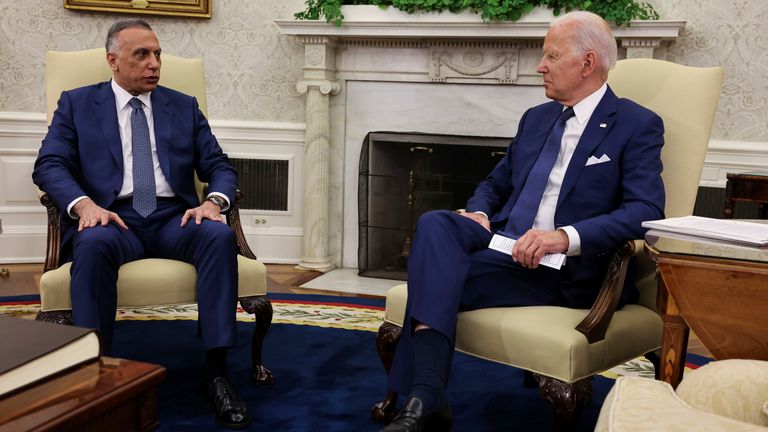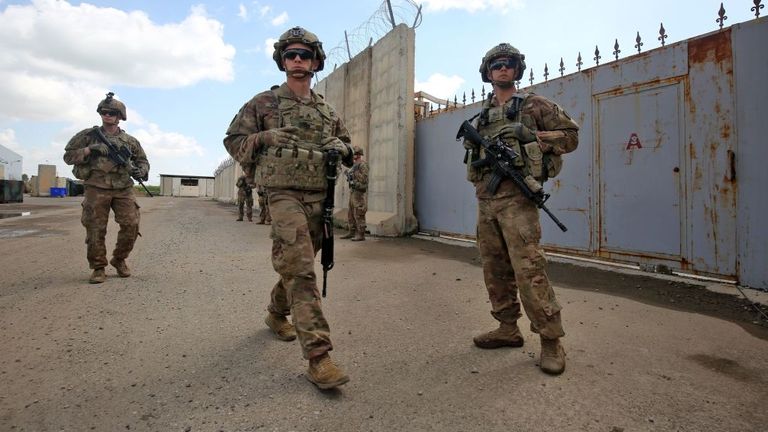Biden ends US military’s combat mission in Iraq to focus on ‘strengthening’ partnership
President Joe Biden is to end the US military’s combat mission in Iraq by the end of the year after coming to an agreement with Iraqi Prime Minister Mustafa al-Kadhimi.
During a meeting with the Iraqi leader on Monday, Mr Biden said that US counter-terrorism cooperation will continue and America’s role in Iraq will be dealing with training and with ISIS.
He said his administration is committed to strengthening its partnership with Iraq and the US will send out COVID-19 vaccines to the country “quickly”.
“Our role in Iraq will be… to be available, to continue to train, to assist, to help and to deal with ISIS as it arises but we’re not going to be, by the end of the year, in a combat zone,” Mr Biden told reporters.
It comes more than 18 years after US troops were sent to the country and follows Mr Biden’s withdrawal of the last American forces in Afghanistan by the end of August as he completes US combat missions in the two wars that then-President George W Bush began.
Mr Biden and Mr Kadhimi met in the Oval Office for their in-person meeting as part of a strategic dialogue between the US and Iraq.
Currently, there are 2,500 US troops in Iraq focusing on countering the remnants of Islamic State.
Their focus will shift entirely to training and advising the Iraqi military to defend itself – but is not expected to have a major impact since the US has already moved toward focusing on training Iraqi forces.
In 2003, a US-led coalition invaded Iraq based on charges that then-Iraqi leader Saddam Hussein’s government
possessed weapons of mass destruction.
Hussein was ousted from power, but the weapons were never found.
For several years the US mission has been dominated by helping defeat IS militants in Iraq and Syria.
“Nobody is going to declare mission accomplished. The goal is the enduring defeat of ISIS,” a senior administration
official told reporters ahead of Mr Kadhimi’s visit.
The official added that by the end of the year “we think we’ll be in a good place to really formally move into an advisory and capacity-building role”.
Source: Read Full Article




